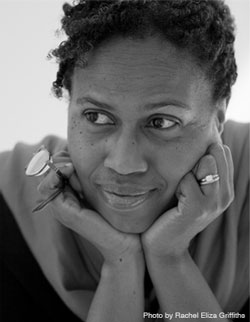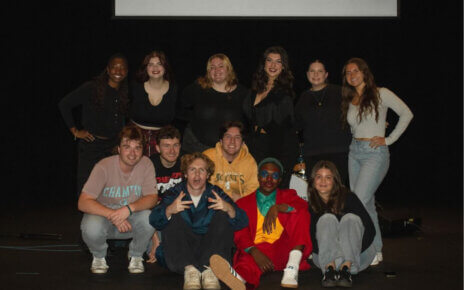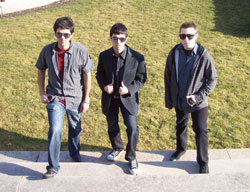The University was host to the renowned poet Janice Harrington on Tuesday, February 5, as part of the Visiting Writer series. The event took place in the Wilson Auditorium at 7:30 pm, where she recited her work and discussed the inspiration behind it to a nearly full house.
Harrington has written two books of poetry, the first of which is titled Even the Hollow My Body Made is Gone, which won the A. Poulin, Jr. Poetry Prize from BOA Editions as well as the Kate Tufts Discovery Award. Her second book is In the Hands of Strangers.
She has also published several children’s books, titled Going North, The Chicken-Chasing Queen of Lamar County, Roberto Walks Home, and Busy-Busy Little Chick.
According to her website, she is also the winner of a 2007 National Endowment for the Arts Literature Fellowship for Poetry and a 2009 Rona Jaffe Foundation Writers’ Award for emerging female writers. In addition, she now teaches in the creative writing program at the University of Illinois.
Harrington’s enthusiasm and stage presence was clear from the beginning of the meeting. She began by joking about the faces of the Congressional figures during the inaugural poem, during which many are said to have made pained expressions, and that she hoped none of the audience members would give her the same face. “It’s terrible,” she confessed, “As a poet, I do that to people!”
Humor was clearly an integral part of Harrington’s personality. “I’m a very particular person. I know what poems I’m going to read, in what order, when I’m going to start,” Harrington said, smiling. “I time everything, then I get in front of the audience and change my mind.”
Dr. Michael Waters, professor of English, was excited to have Harrington speak to the students. “How lucky we are to have a poet of such caliber at our university!” said Waters. “I hope she can inspire our students to one day write such wonderful poetry.”
During the assembly, she chose to read selected works from her two poetry books, beginning with Even the Hollow my Body Made is Gone. From the start of the first piece, it was easy to see why the University asked her to be a part of this year’s Visiting Writers series.
Centered primarily on rural Alabama, where Harrington spent many of the early years of her life, her readings from this book had a vibrant imagery that evoked a deep sense of the 50s-70s. Some of her work spoke on the Civil Rights movements, others on Baptist church revivals (replete with exaltations of “Praise Jesus!”) while others touched upon the delicate, simple nature of her childhood through subjects like fried apple pie.
One of the most vivid from this selection was called “If She Had Lived”, which is an imaginative exploration of a sister that had been born deformed, with many describing her as a goat-faced girl, though she died shortly after birth. The fact that the poem’s contents were fictional, but based on one real event, is testament to her imagination.
Another notable moment was during a poem on the Civil Rights Movements when Harrington asked all of the audience members to stand. She encouraged everyone to yell, whisper, and sing along to her poetic cues.
Though some murmurs of discontent were heard, the majority of the crowd smiled and seemed eager to engage with the poet.
The interactive nature of this scene was matched later when she instructed those in attendance to turn to someone they did not know and describe either a terrible job that he or she once held or the story behind a scar (she also reminded everyone not to remove any clothing to display said scar).
Her rationale, she explained, is that these are things we all have in common: most people have been hurt, had an awful experience in the work industry, or both, and that understanding the ways we are alike can help us better understand each other’s differences.
This activity led into her reading from In the Hands of Strangers, a book full of accounts of mechanical nurses, elderly persons haunted by a life of turmoil, and the emotional strain involved with caring for those who are in the final stages of their lives.
Lauren Schmidt, adjunct professor of English, was glad to have attended. “I loved the visceral quality of her work,” said Schmidt.
Courtney Luk, a senior English major with a concentration in creative writing, enjoyed Harrington’s charisma. “I thought it was really different because she made us talk to each other and do things and sing,” Luk said. “I also liked how she incorporated music into her poems.”
A brief Q&A session was followed by her reading a final poem. At the event’s closing, Harrington was available to speak with and autograph copies of her books, eager to greet attendees regardless of whether or not they liked her work because, as Harrington herself said, “It’s not that you don’t understand poetry, it’s that you don’t understand me.”
IMAGE TAKEN from janiceharrington.com



